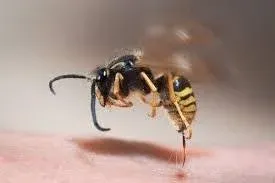Children and toddlers are naturally curious, often exploring gardens, corners of the house, or outdoor play areas where spiders might live. While most spider bites are harmless, they can still cause discomfort and anxiety for both the child and parent. In rare cases, venomous spider bites may require urgent medical attention. Knowing the right spider bite treatment for children and toddlers ensures quick relief and prevents complications.
Recognizing a Spider Bite in Kids
Spider bites can look like other insect bites, but some common signs in children include:
Redness and swelling around the bite area
Itchiness or mild pain
Small puncture marks
Warmth around the skin
In cases of venomous spiders, symptoms may become more serious, such as:
Severe pain that spreads
Muscle cramps or stiffness
Nausea, vomiting, or fever
Open sores or blistering
First Aid for Spider Bites in Children
Immediate care makes a big difference in recovery. Here are the key steps:
Stay Calm and Reassure the Child
Children may panic when in pain. Keeping them calm helps prevent scratching or worsening the bite.Clean the Bite
Wash the area gently with mild soap and water to prevent infection.Apply a Cold Compress
Place a clean, cold cloth or ice pack (wrapped in a towel) on the bite for 10 minutes to reduce swelling and itching.Elevate the Area
If the bite is on an arm or leg, keep it elevated to reduce swelling.Use Child-Safe Remedies
Apply aloe vera gel or a baking soda paste to soothe irritation.
Over-the-counter antihistamine creams for children may help (ask a pediatrician before use).
When to Seek Medical Help
Not all spider bites need a doctor, but you should seek medical attention if your child shows:
Severe pain or spreading redness
Signs of infection (pus, warmth, fever)
Muscle cramps, headache, or vomiting
Blistering or skin breakdown at the bite site
Difficulty breathing or swallowing (possible allergic reaction)
For young children and toddlers, it’s always safer to consult a pediatrician if you’re unsure about the bite.
Preventing Spider Bites in Kids
Prevention is the best protection. Here are practical tips:
Shake out shoes and clothes before use
Keep play areas clean and free of clutter
Seal cracks and windows to keep spiders out
Encourage children not to touch or play with insects
Final Thoughts
Most spider bites in children are minor and heal quickly with simple home care. However, knowing proper spider bite treatment for children and toddlers helps parents act confidently. Always monitor your child closely, use safe remedies, and don’t hesitate to seek medical care if symptoms worsen. With the right steps, you can ease discomfort, speed healing, and protect your little ones.






